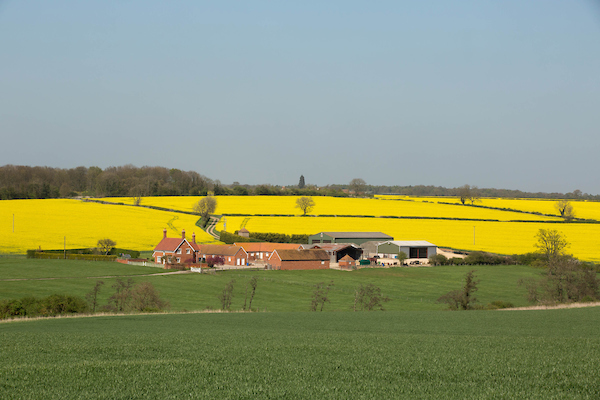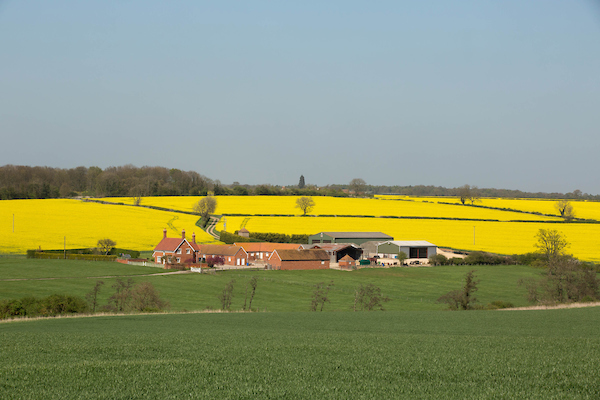
CPM reports on Defra’s major post-Brexit plan to invest in the environment, productivity and farmer-led R&D under a new system of “public money for public goods”, with a seven-year agricultural transition period designed to give farmers time to adjust as they plan for the future.
Legislation to deliver a cleaner and healthier environment for future generations after nearly half a century under EU rules is being introduced into Parliament today. But the NFU has said it falls short of its aspirations.
The Agriculture Bill sets out how farmers and land managers will in future be paid for “public goods”, such as better air and water quality, improved soil health, higher animal welfare standards, public access to the countryside and measures to reduce flooding.
This will replace the current subsidy system of Direct Payments, which is ineffective and pays farmers based on the total amount of land farmed. These payments are skewed towards the largest landowners and are not linked to any specific public benefits. The top 10% of recipients currently receive almost 50% of total payments, while the bottom 20% receive just 2%.
In its place, a new Environmental Land Management system will start from next year. The government will work together with farmers to design, develop and trial the new approach. Under the new system, farmers and land managers who provide the greatest environmental benefits will secure the largest rewards, laying the foundations for a Green Brexit.
The Bill will also be underpinned by measures to increase productivity and invest in R&D.
For example, there will be funding available for farmers to come together to develop and get the research projects that they want and need, whether that be on soil health or sustainable livestock farming . This will lead to practical gains for farmers that help them become more profitable and reduce their environmental footprint.
The government will also be able to make payments during the seven year transition period for famers to invest in new technologies and methods that boost productivity.
Environment Secretary Michael Gove said: “The introduction of the Agriculture Bill is an historic moment as we leave the EU and move towards a brighter future for farming.
“After nearly 50 years of being tied to burdensome and outdated EU rules, we have an opportunity to deliver a Green Brexit. This Bill will allow us to reward farmers who protect our environment, leaving the countryside in a cleaner, greener and healthier state for future generations.
“Critically, we will also provide the smooth and gradual transition that farmers and land managers need to plan ahead,” he added.
Farmers will be supported over a seven-year transition period on leaving the EU’s Common Agricultural Policy (CAP).
Direct Payments for 2019 and 2020 will be made in much the same way as now. Simplifications will be made as soon as possible, subject to the terms of the overall Brexit implementation period. There will then be an agricultural transition period in England between 2021 and 2027 as payments are gradually phased out.
To help new entrants get into the sector and give farmers flexibility to plan for the future, Direct Payments during the agricultural transition period up until 2027 will be “delinked” from the requirement to farm the land.
These payments, which may be calculated according to money received in previous years, can be used by farmers to invest in their business, diversify their activities or else retire from farming and give way for new people to enter.
The Bill also sets out how the government will strengthen transparency in the supply chain to help farmers get a better deal in the marketplace. By collecting data from across the supply chain, the government will help food producers strengthen their negotiating position at the farm gate and seek a fairer return.
The NFU has stressed that Government must put the business of food and farming at the heart of the new Agriculture Bill.
NFU President Minette Batters said: “The NFU alongside, the whole food supply chain, has been absolutely clear about the essential ingredients for a progressive, profitable, and sustainable food and farming sector post Brexit. These include comprehensive measures to improve the environment and productivity and tackle volatility alongside free and frictionless trade and access to a competent and reliable workforce.
“The Bill, as described in the announcement falls short of our aspirations in these regards.
“It is vital that in the future British farmers can continue to meet the food needs of a growing population. A future agricultural policy that ignores food production will be damaging for farmers and the public alike. The public demand and deserve safe, high-quality, traceable affordable food, whatever their income. And moreover they want British farms to supply that food.
“Farmers across the UK will be very concerned that the Bill provides only a short term commitment to improve their competitiveness; we cannot future-proof farming businesses based on the ‘time-limited’ initiatives outlined in this announcement.
“Along with other farmers I will also be looking to the Bill to set out means to address the clear market failure in food chain that means farmers are not rewarded fairly for the risk and investment they make . British farmers will need to compete with farmers all over the world, nearly all of whom are supported financially to produce food. If British farmers are to underpin the nation’s food security, then they will need the right financial and policy framework to do so in a competitive and volatile global marketplace.
“We will look closely at the Government’s proposals for a seven-year transition period, during which direct payments will be phased-out, to ensure we’re satisfied that this will be sufficient. In particular, the Bill must provide Government with the powers to pause the process if it is proving unmanageable for farmers, and if our domestic food supply and food security are under threat.
“We are entering an historic period for farming with legislation setting the path for the next generation of farmers and the countryside. With critical decisions still to be taken in the months and years ahead it would be foolhardy for the Government to embark on such a path without knowing trading environment in which it will be set. A free and frictionless trade deal with our biggest trading partner, the EU, is absolutely critical to the farming industry.”




